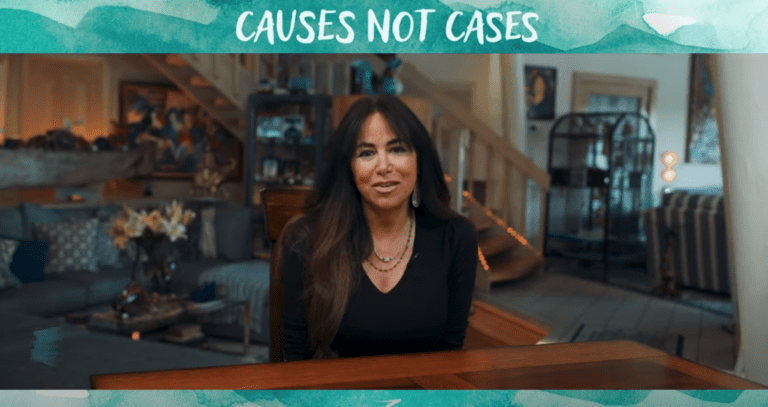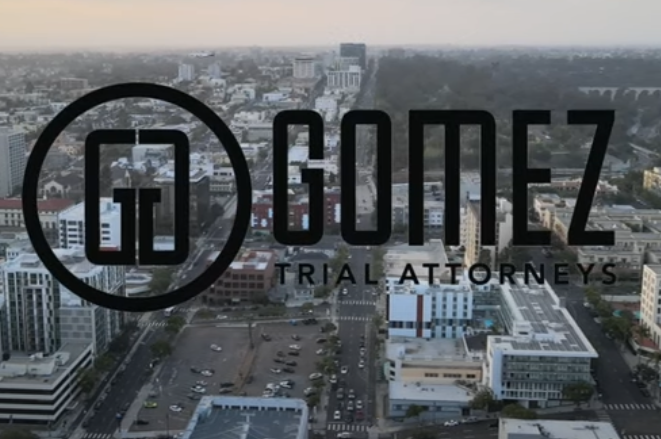When you or your child sustains a head injury, you may feel relieved that doctors called it a concussion or a “mild” traumatic brain injury and nothing more serious. The doctors might even reassure you that the attention, balance, headaches, dizziness, and other issues will begin to subside in a week to a few months. In a few months, you’ll feel all better if you follow the appropriate recovery guidelines. You rest and relax and delay your return to work, play, and planned activities.
When your brain doesn’t heal as quickly as your doctor predicted—and the symptoms may even deepen—you begin to realize that recovery isn’t quite as straightforward as your doctor initially described. This is not uncommon.
As the Brain Trauma Foundation FAQ explains, brain injuries evolve over the hours and days after the initial trauma. Brain swelling, oxygen levels, and blood flow may determine your physical condition and recovery prospects. Concussion symptoms sometimes continue for months and even years.
Mild Is a Misleading Term
For starters, diagnosis doesn’t always correspond to prognosis. In other words, when doctors use the term mild traumatic brain injury, they do not refer to the outcome you can expect. Instead, they’re only observing the initial presentation of your symptoms. Those symptoms, even in a concussion or so-called mild TBI, can persist for years, and even grow worse with time—while a patient diagnosed with a severe TBI could fully recover.
In other words, diagnoses like mild don’t necessarily accurately predict how long or how badly symptoms will affect you. Traumatic brain injuries, no matter what adjectives doctors use to describe them, are complex and unpredictable. Please bear this in mind as you read on.
Your Concussion Is a Traumatic Brain Injury
If your doctor didn’t mention that your concussion is a mild traumatic brain injury, his actions reflect a traditional (and outdated) diagnostic approach. The Pediatrics article “My Child Doesn’t Have a Brain Injury, He Only Has a Concussion“ explains this dynamic. When you have a TBI as an adult, your doctor may use the same “concussion” terminology.
Calling a mild traumatic brain injury a concussion is common among pediatric physicians. It simplifies the challenge of explaining a head injury diagnosis to a parent. Some pediatricians are simply complying with diagnostic tradition.
Some do it for other reasons. Per Pediatrics:
- Concussion is less alarming than mild traumatic brain injury.
- Physicians use the concussion diagnosis as it implies that a head injury has “no significant long-term health consequences.”
- The diagnosis may reflect a tradition of using the term concussion when a person’s head injury is sports-related.
- A concussion diagnosis both predicts and encourages a return to normalcy.
- The concussion label is often misapplied to children with more serious conditions.
“Mild” Traumatic Brain Injuries in Children
The chronic traumatic encephalopathy controversy has elevated concussion awareness. Parents, teams, coaches, and sponsoring organizations now accept concussions as serious sports-related injuries. The Concussion Legacy Foundation’s PSA “Tackle Can Wait” shows parents passing out cigarettes to children on a football field. The visual sends a strong message about the absurdity of allowing a child to play a sport with the potential to cause lifetime impairments.
CTE has raised concussion/mTBI awareness, but children also sustain traumatic brain injuries due to falls, car accidents, being struck by or against objects, and violent incidents such as childhood abusive head trauma (like shaken baby syndrome). The CDC tracks and estimates the incident numbers and established Head’s Up, a concussion information site with recovery protocols for young athletes. They also acknowledge shortcomings in the systems that diagnose and treat young children’s head injuries.
The CDC’s Report to Congress: The Management of Traumatic Brain Injury in Children, raises several important points:
- The CDC’s most recent estimates reveal that 837,000 children visited emergency rooms for head injuries during 2014. Of those visits, 70 percent to 90 percent involved mTBIs.
- As 82 percent of families visit primary care physicians for initial mTBI treatment, the CDC suspects a significant undercount in these incident numbers.
- The agency acknowledges that mild TBIs are usually called concussions. Moving forward, they intend to use the terms: mild TBI or mTBI.
- There is a great deal of variability in the treatment protocols for childhood mTBIs. The CDC is working to develop standardized post-injury and long term treatment guidelines for childhood brain injuries.
- The CDC report quoted a study by the American Journal of Public Health. Researchers looked at children 12 months after their initial mTBI diagnosis and found that 14 percent required specialized medical and educational services.
- There are no long-term studies documenting childhood mTBIs’ impacts on adult milestones, graduation, careers, or higher education success.
Traumatic Brain Injury in Adults
Adults and children with brain injuries have similar symptoms, but adults recognize and report their symptoms more effectively than children. They have greater communication skills and can provide more subjective information to guide a medical practitioner’s assessment, diagnosis, and treatment. In most situations, adults maintain control of their medical care. They schedule their own follow-up visits and explain their continuing concerns more clearly.
Despite their communication advantages, adults still encounter stumbling blocks during diagnosis, treatment, and recovery.
- Adults aged 75 years and older are at high risk for TBIs. They are also more likely to require emergency treatment or hospitalization.
- A TBI increases an adult’s risk of neurodegenerative disorders, such as dementia.
- Mild TBIs affect the ability to earn a living as they sometimes interfere with normal workplace functioning.
- Some soldiers with a prior mild TBI diagnosis have an increased risk for post-traumatic stress disorder (PTSD).
- A soldier suffering from both mTBI and PTSD is more likely to develop post-concussion syndrome (PCS).
- When an adult with a history of psychological disorders sustains an mTBI, they are more likely to experience PCS.
- When an adult sustains repeated TBIs, it changes the way their family functions. Family members and caregivers sometimes suffer distress and depression.
Diagnosing Mild Traumatic Brain Injury
Each person responds uniquely to the same or similar head trauma. In treating patients, doctors diagnose them based on symptoms and other diagnostic criteria.
Glasgow Coma Scale
The Glasgow Coma Scale helps physicians rate patient brain injuries based on eye-opening, verbal, and motor responses to stimuli.
Subtype Classification
Recently, a Stanford University physician’s workgroup developed concussion guidelines for diagnosing and treating mild traumatic brain injuries. The physicians identified five symptom-informed mTBI subtypes: Cognitive, Ocular/Motor, Headache/Migraine, Vestibular, and Anxiety/Mood. Their guidelines acknowledge that a person’s injuries may include more than one subtype. The group also documented two associated symptoms, sleep disturbance and cervical strain, which they don’t believe fit the criteria for an mTBI subtype.
Reported and Observed Symptoms
When a child or adult sustains a mild traumatic brain injury, they display one or more of a range of symptoms. Regardless of which diagnostic system a physician uses to assess injury severity, they must also consider a patient’s reported and observed symptoms. These fall within four traditional categories: thinking/remembering, physical, emotional/mood, and sleep.
Thinking/Remembering
- Difficulty thinking clearly
- Feeling slow
- Difficulty concentrating
- Short term memory issues
Physical
- Headache
- Blurred vision
- Nausea, vomiting
- Dizziness
- Light and noise sensitivity
- Balance problems
- Lethargy
Emotional/Mood
- Irritability
- Sadness
- Anxiety
- Nervous
Sleep
- Sleeping more or less than normal
- Trouble falling asleep
The CDC lists these additional symptoms as danger signs that an injured person requires immediate attention:
- One pupil larger than the other.
- Drowsiness
- Worsening headache
- Slurred speech
- Weakness, numbness
- Convulsions or seizures
- Restlessness, agitation, confusion
- Loss of consciousness
- A young child or baby who won’t stop crying or won’t nurse or eat
mTBI Recovery Difficulties
Doctors often present a best-case scenario for mild TBI/concussion patients. Researchers in the Pediatrics study found that a concussion diagnosis (versus an mTBI diagnosis) both predicts and encourages a fast return to normalcy. In the studied cases, concussion-diagnosed patients left the hospital sooner. Families dealing with a concussion diagnosis moved forward based on the plan that the injured person could return to normal activities in weeks or months.
It doesn’t always work out that way.
Whether your doctor calls it a concussion or a mild traumatic brain injury, some symptoms of diminished brain function often last for weeks, months, and beyond. Complications sometimes occur well beyond the predicted recovery period.
- Brain bleeding: After a brain injury, some patients experience immediate or delayed brain bleeding. Until a physician controls the bleeding, it interferes with the blood flow that supplies the brain’s oxygen. Excessive brain bleeding is sometimes fatal.
- Post traumatic seizures: Mild TBI patients sometimes experience post-traumatic seizures weeks and months after an injury. The CDC indicates that this condition sometimes requires seizure management and control and anti-convulsive medication.
- Headaches: In some cases, this initial concussion symptom continues for months after the initial head trauma.
- Dizziness: Dizziness is another brain injury symptom that sometimes continues long after the initial diagnosis.
- Mild cognitive impairment: Physicians usually associate this with aging, but some mTBI patients also experience cognitive issues during and beyond recovery. The affected person experiences memory lapses, forgetfulness, and may have difficulty recalling the names of common objects.
Progressive Recovery Difficulties
While some MTBI patients experience isolated or occasional symptoms, others endure clusters of symptoms.
Post Concussion Syndrome
When mTBI symptoms last beyond the point where a physician believes you should be symptom-free, they sometimes diagnose post-concussion syndrome. Patients manifest the same categories of symptoms as those used in establishing an mTBI diagnosis. In diagnosing and treating PCS, doctors consider each patient’s symptoms and complaints.
Physicians have no consistent guidelines as to how many symptoms constitute post-concussion syndrome or how long those symptoms should last. Research groups have conducted studies to try to answer PCS-related questions.
Journal of Neurosurgery
The article “Postconcussion syndrome: demographics and predictors in 221 patients” reviewed 284 patient outcomes under the premise that post-concussion syndrome occurred only after multiple concussion injuries.
- 221 patients had experienced three PCS symptoms for at least one month.
- 23.1 percent of the patients surveyed sustained PCS after only one concussion.
- The patients had an average of 8.1 symptoms.
- Seven years was the median duration of PCS symptoms.
- The patients ranged in age from 10 to 74.
- One had experienced PCS symptoms for 26 years.
The Journal of Neurotrauma
The article “Longitudinal Study of Postconcussion Syndrome: Not Everyone Recovers” evaluated 110 concussion patient questionnaires. Those who remained symptomatic suffered a range of PCS complaints.
- Of the patients surveyed, 30 had recovered, but 80 had not yet recovered.
- The patients surveyed had received PCS treatment for an average of 4.4 years.
- The most common complaints were “headaches, difficulty concentrating, and fatigue.”
- Recovery time was usually tied to the number of symptoms experienced.
Second Impact Syndrome
The Mayo Clinic’s concussion page discusses what happens when a person sustains a second concussion before a previous concussion is asymptomatic. The second concussion may cause rapid and potentially fatal brain swelling. “Second Impact Syndrome,” published by the Western Journal of Emergency Medicine, related the condition to professional sports.
Chronic Traumatic Encephalopathy
This highly publicized brain condition is often considered football-related. It’s also a concern for players in any professional, college, or youth sport where player collisions occur. Concussions are not even necessary for CTE to develop—repeated microtraumas that don’t rise to the level of TBI can cause this progressive, degenerative condition that alters the brain and profoundly affects a injured person’s life.
In addition to traditional concussion symptoms, a person with CTE experiences degenerative brain changes. They sometimes display aggressive behavior, suicidal thoughts, substance abuse tendencies, judgment and impulse control, and many other conditions.
Missed Brain Injury Diagnoses in Older Adults
Older adults sustain head injuries at higher rates than young adults and they have higher complication risks. Unfortunately, their brain injuries are often overlooked or misdiagnosed. When an older adult sustains an mTBI in a fall or an accident, more obvious injuries may obscure it. If a severe body jolt causes an mTBI, an older adult won’t necessarily show a visible head bump or bruise to indicate head trauma.
Many older adults take blood thinners that enhance their risk for TBI complications. After a head injury, the medication often worsens or accelerates brain bleeding. The CDC recommends that an older adult on blood thinners who bumps or bruises their head should seek immediate medical treatment. The CDC also recommends emergency treatment for older adults who experience worsening headaches, confusion, or any of the other TBI danger signs.
Do You Need an Attorney if You Have a Traumatic Brain Injury?
If you’re dealing with a traumatic brain injury caused by someone’s negligence, you owe it to yourself to consult a brain injury lawyer. Whatever degree a doctor assigns your TBI, your recovery can involve complicated and lasting consequences. If you’re dealing with an insurance company, you need a legal representative to protect your interests.
When you consult a brain injury lawyer, you don’t have to make a commitment to take legal action. You simply share your story so you can learn your legal options. An attorney will only seek to recover damages on your behalf when you’re ready.







